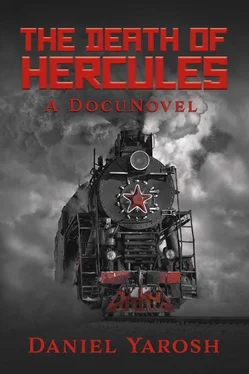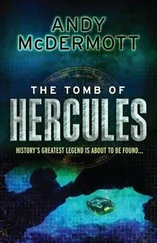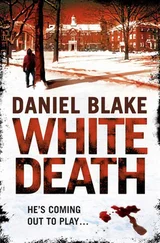The light at the door was blinding, and in from the void strode Josef Kikulsky, still wearing the blue woolen coat from his platform speech. He said a few words in Russian to the sentries at the window, and then squinted to see exactly who was there. As his eyes adjusted, he found the twenty or so who had guided him from the square when the police charged. This Josef was reserved, even charming. He went from man to man, asking each his name in Polish, using a hushed tone and looking directly into his eyes. He called them all Comrades. He didn’t ask where they came from or why there were there. But he shook the hand of each of them or patted his back or squeezed his arm. Soon they were his.
After he chatted with the lookouts, he turned to address them.
“Children of the Revolution, you have come here for a reason. You know that as well as me. We are going forward. This was one more stop on the road to freedom.” He turned to take in the room, to make sure everyone was listening. “I have received a message from Comrade Dzerzhinsky,” he bellowed, seemingly without fear. Felix Dzerzhinsky was the head of Cheka, the Bolshevik Extraordinary Commission for Combating Counter-Revolution, Sabotage and Criminal Offenses by Officials. The Russian initials for “extraordinary commission” formed Cheka. It was the most feared committee of the Revolution, a law unto itself. The silence deepened, and their ears perked. “Just this afternoon, a messenger found me here. A letter,” and he held it aloft. “An appointment. A summons. Comrade Dzerzhinsky has asked me to join his defense of the Revolution.”
The lookouts were delighted, and the men by the door congratulated each other. “Back to Moscow!”
“Shhh”, Kikulsky said, with his finger against his lips. “I will need more help. The Director has asked me to bring loyal Comrades. No one was more loyal than those of you today.” He looked around the room. The men, including Zalmund, were sheepish but not modest. “We need men such as you in the Revolution. Come with me to Moscow and join in making our future with Comrade Lenin. Be with me in our Cheka.”
A stone silence gripped the room. Each man considered the precipice on which he stood. Then a cheer broke out. “To Lenin! To the Revolution!” They crowded around Kikulsky to pat him, and touch history. Zalmund felt the warm charm of Kikulsky, and the cold terror of Cheka. To be invited into the belly of the beast. Each felt that he had been called to this place and time. No thought or calculation was necessary.
It was not at all unusual to recruit members of Cheka from outside Russia, especially among the Poles, who despised Russians. The job of Cheka was to ferret out counter-revolutionaries, identify traitors and annihilate them. Russian men would weasel, bribe and connive to deny their guilt; Russian women would wail and beg that their sons be spared. Then Cheka must do its duty.
Their departure was planned for the next day. A calm fell over Zalmund. A purpose had taken up the reigns of his uneasiness and had bridled his anxiety. A mania gripped his thoughts. What he could do in Moscow, to witness, and maybe to do himself, to change history.
He looked different when he returned late at night to the room he and Deena had taken in the home of a tailor, above the shop. His aching arm was held in a makeshift sling. At first, Deena was afraid.
“What happened to you! Are you hurt?” she whispered as she rushed to the door.
“No, no, nothing like that. You should have seen it! They rushed us with horses!” he spoke in a gallop.
“The Police?”
“Of course, and their goons!”
She unwrapped his sleeve and examined the torn shirt and the bruise growing on his forearm. She looked up at him, and he pulled his arm away. His eyes had depth, and a glow. “What happened to you?” she repeated.
“I am going to Moscow. I want you to come with me.”
“Moscow?” She paused. Her mind raced. Moscow. The Capital City. What excitement that idea held. She imagined her little apartment, off the trendy street with coffee houses and artists. She caught herself. She was naturally cautious of happiness. “Moscow, why?”
“The Revolution is in Moscow” he said to her softly.
“Yes, of course.”
“Don’t you want to see it?”
“Moscow?”
“The Revolution!”
“What in the Revolution?”
“The history. The change in history,” he said.
“What will change for me?”
He paused. He looked away.
She stroked the back of his head. “When do we leave?” she said.
He embraced her. He looked over her shoulder at this hovel of a room, with an uneven floor and spaces between the wall slats where the wind blew in. Their clothes spilled from two suitcases laying opened next to the straw mattress on the bare wood floor. Lublin was not a destiny, but a stop on the way.
**********
In May of 1918 Lenin turned his full attention to putting into action the words of his revolution: the establishment of a Proletarian State. The problem was that there were precious few capitalists in Russia to attack, following the steep decline of the Russian nobility and their industries. But there was pain from the War, anger against the German Tsarina, and Lenin found a target. He directed Sovnarkom, the governing committee of the Revolution and the animation of his craze, to launch an assault on the “peasant bourgeoisie”. This meant Russians who owned the land they worked. Farmers, who fed the nation, became the enemies of the state. Zalmund and Deena came to Moscow to provide security for this unleashed fury.
Russia was intoxicated with self-excoriation. Food supplies withered following the army’s retreat from the Ukraine, and in May Lenin announced that no tactic was too terrible to punish the wealthy and take bread for the masses. Peasants and villagers stalked the manors and shops, slaughtering the “bourgeoisie” and confiscating bread, grain and farm animals. The War crippled food production and the Revolution executed the producers. Famine spread. Lenin demanded that workers redouble their efforts, but in the midst of crushing deprivation there was little to give. He threatened to escalate the violence, the retribution of the Masses. Zalmund was witnessing in Moscow the precipice on which the Bolsheviks stood.
Zalmund and Deena were given a little apartment on the west side of Moscow. Or rather, they had a room and shared the rest of the apartment with Polish comrades. Sharing was very important in the Revolution. Tad and Nadja, Miro and Myrna, Lenish and Petra, all were enthralled with the revolution and its possibilities, and with each other. They lived that Spring sprawled across each other’s lives, according to the ideals of the Revolution: no possessions in property or in love.
Tad, Miro and Lenish had been at Lublin with Zalmund; they had the idea to bring their girlfriends to Moscow for a summer of love and defiance of authority; or rather, conformity to the rejection of the status quo. By day the men were assigned by Sovnarkom to security details. They drove Bolshevik officials around Moscow to factories, rallies, appointments and rendezvouses with mistresses. By night they celebrated the revolution by drinking great quantities of vodka.
On a mild May night, they gathered in the great dressing hall of the Imperial stables outside the Kremlin and held a Revolutionary poetry reading. The early verse reading was led by Miroslav Grodnoviek, the Red Army political organizer. He was tall, and his uniform was new and well-tailored. It was a modern style, with a freshly pressed khaki shirt and bars on the collar stays. From the very start of the Revolution, shoulder straps were associated with the old regime, the Tsar, and the oppression of the people. The Red Army always wore its insignia of rank on the collars of their uniforms.
Читать дальше












